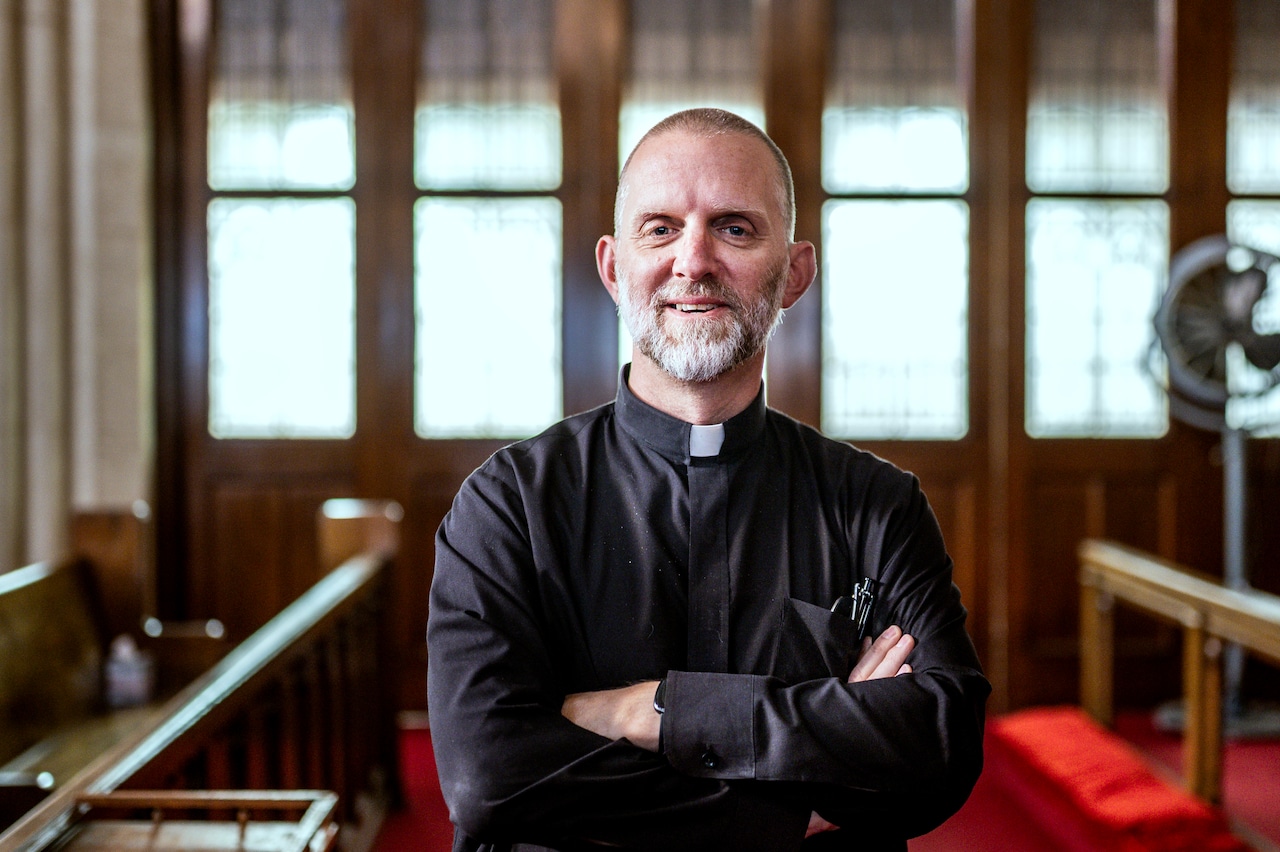Copyright Mechanicsburg Patriot News

The Rev. Matthew Best noticed the emails and drop-in visits began to increase a few weeks ago. The majority of Best’s congregants at Christ Lutheran Church in Harrisburg’s Allison Hill neighborhood struggle to make ends meet. His community was a bit worried whether the government shutdown would impact federal food benefits. Now Best is swamped with parishioners in a panic over funding for the federal supplemental food program, SNAP, which expires on Saturday. “A lot of people think about budgets and government shutdowns in terms of partisan politics,” he said. “But our concern is very much about the people who are impacted. Oftentimes, these are folks who have very little options. They’re receiving this support because they need it.” An estimated 42 million Americans and 2 million Pennsylvania residents — many of them children, seniors, the disabled and veterans — are about to get no fresh infusion of funds to their SNAP cards on the first of the month. Overnight their safety net for essentials like milk, bread, fruits and vegetables will disappear. The families in Best’s multi-cultural, multi-racial congregation are among the more than 30,000 Dauphin County residents who depend on SNAP. He bristles at the Republican assertions that SNAP recipients are siphoning off public money and refusing to work. According to data from the Center on Budget and Policy Priorities, most people who receive the food program benefit already work (some multiple jobs), and those who don’t simply cannot because of health or disability, or the inability to find child care. An analysis from the center found that, 85% of families receiving SNAP benefits had at least one person working in the previous 12 months. Best is appalled at some of the heartless comments s that people leave on social media. “I‘m very discouraged by the lack of any sense of empathy,” Best said. “It’s as if ‘I’ve got mine, forget everyone else.’ Which is really disheartening... And the hard reality is that the vast majority of us are much closer to needing SNAP benefits or Medicaid benefits or going to a food pantry for ourselves and for our families than a lot of folks realize.” For weeks hunger coalition stakeholders, community and faith leaders have been sounding the alarm about the impending crisis. Hunger coalition stakeholders have warned that inventory is getting low even as the demand is about to explode. Many seek to keep a low profile and avoid the stigma that is associated with receiving the so-called food stamp benefit. But a single mom from Pennsylvania decided to tell her story in The New York Times. “Each time I pulled my benefits card out of my wallet at the grocery store checkout, it was as if a blanket of shame lay over my shoulders; I worried the cashier and the other customers were judging me for needing help,” wrote Elizabeth Austin, of Bucks County, in a piece published Wednesday. Her experience with SNAP began in 2012 when the father of her two children walked out on them. A few years later, her daughter was diagnosed with cancer, and Austin has depended on SNAP for food staples. “Conversations around SNAP benefits are often fraught, dominated by the simplistic refrain that recipients should “get a job,” Austin wrote. “My experience illustrates why this response misses the mark. It took me time to find a job when I first needed SNAP, when I was raising two small children alone. I had that job when the challenges of working through my daughter’s cancer diagnosis ultimately cost me my position. I have a job now as a freelancer, building my career back one contract at a time.” Monthly SNAP payments range from about $200 for a single person to an average of $700 for a family of four, with additional funds for larger families. “As a child who was actually raised on the food stamp program, I know how substantial that could be between the difference of families going hungry or families having a hot meal at night,” said Ralph Rodriguez, a Harrisburg City Council member for whom the program made the difference between having hot meals at home or going hungry. “I remember my mom giving us booklets of coupons, which were food stamps at the time, and we would run to the store and there was even a level of embarrassment with it because, you know, kids did snicker at you for being a kid, spending a coupon. But guess what? You came back home with food, and it was great food.” He is concerned that the SNAP payments will affect the capital city with its high poverty rate and median household income of $48,000. “It’s going to affect Harrisburg, pretty substantially,” Rodriguez said. “I think we all need to be all hands on board and trying to do the best we can, similar to the COVID pandemic, just to ensure that we can do the most we can to mitigate hunger in the area.” Gov. Josh Shapiro this week joined a multi-state lawsuit against the Trump Administration for unlawfully suspending SNAP payments and failing to use billions in contingency funds approved by Congress to continue benefits during the shutdown. A federal judge in Boston might offer a last minute respite, but that remains to be seen. Just two days before the SNAP suspension was to take effect, U.S. District Judge Indira Talwani was poised to rule on the legality of the Trump administration action. The state Departments of Human Services and Agriculture are coordinating with local food banks and community organizations to prepare for the potential disruption in benefits. Those outlets for food for low-income families are already strained due to federal budget cuts along with a protracted state budget impasse now about to enter its fourth month. “I don’t recall a time when the state budget and the federal budget have both been locked up,” said Stuart Haniff, executive director of Hunger-Free Pennsylvania, part of a statewide coalition of food banks and pantries. “And unfortunately, the real people, the people who suffer the most, are those who are already least able to withstand loss, reduction and hurt. I mean, it’s positively frightening what the potential could be.” Any further prolonged challenge from both state and federal sources will only exacerbate the situation, he said. “This really exemplifies that hunger action should not just be a day or a month,” Haniff said. “We should be taking action to make sure that our most vulnerable neighbors have the food they need, not just to survive, but to thrive every day. Unfortunately, thriving is kind of a pipe dream right now. Survival is the name of the game. Food has never been more needed, more in demand, more critical. And unfortunately, it’s not just a safety net now. It’s a lifeline. It’s the difference between surviving and not surviving.” Rodriguez, who has spent decades in non-profit work addressing food insecurity among other poverty issues, is organizing a hot-meal distribution event for city residents next week. He knows its a small ripple in a larger landscape. “Hunger is not partisan,” he said. “Hunger doesn’t discriminate. Hunger doesn’t care if it’s in a three-story mansion or a project tenement with a $30 rent. Hunger is universal. And that’s rural....and cities....These aren’t just city folk. These are Perry County rural communities. These are cities, small boroughs, towns. Hunger doesn’t discriminate. And we’re all going to feel the pinch of this.” Best, the pastor in Allison Hill, points out that most Americans are only a paycheck or two away from their own financial cliff. The SNAP crisis comes on the heels of Trump’s “One Big Beautiful Bill,” which slashed funding to Medicaid and SNAP. Only 46% of U.S. adults have enough emergency savings to cover three months of expenses, according to most financial brokerage companies. That means a single unexpected event can be financially catastrophic for many people. “It’s a matter of looking out for our neighbors,” Best said. “As a pastor, I draw on Scripture. The story in Matthew of the one guy who asked Jesus who is my neighbor? And you know, it’s like, well, everyone is your neighbor.”



